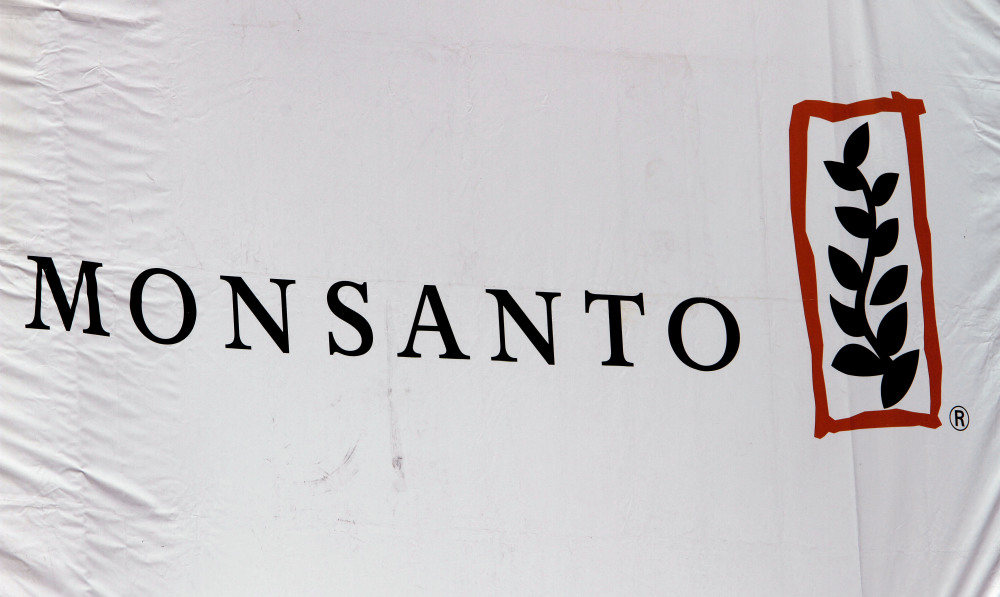Monsanto Co. rejected a $62 billion takeover offer from Bayer as too low, while saying it remains open to further deal talks, putting pressure on the German company to raise a bid that has already sent its stock tumbling.
“We believe in the substantial benefits an integrated strategy could provide to growers and broader society, and we have long respected Bayer’s business,” Monsanto Chief Executive Officer Hugh Grant said in a statement Tuesday.
“However, the current proposal significantly undervalues our company and also does not adequately address or provide reassurance for some of the potential financing and regulatory execution risks related to the acquisition,” he said.
Bayer will likely come back with a higher bid, Jonas Oxgaard, an analyst with Sanford C. Bernstein & Co. in New York, said Tuesday in a note, adding that an offer below $135 per share would be “challenging” for Monsanto to agree to.
Buying Monsanto would create the world’s biggest supplier of farm chemicals and seeds. Monsanto is the largest seed supplier and a pioneer of genetically modified crops, which two decades on from their introduction have come to account for the majority of corn and soybeans grown in the United States. Monsanto also sells seeds in foreign markets including Latin America and India.
The offer from Bayer, which was made May 10 in a letter to Monsanto, marks a reversal of roles for the U.S. company. Monsanto previously sought to buy Swiss pesticide maker Syngenta, abandoning the $43.7 billion bid in August after the other company refused to agree to a deal.
The crop and seed industry is being reshaped by a series of large transactions that may end up leaving just a few global players who can offer a comprehensive range of products and services to farmers. China National Chemical Corp. agreed in February to acquire Syngenta for about $43 billion, months after Monsanto abandoned its own bid for Syngenta. Meanwhile DuPont Co. and Dow Chemical Co. plan to merge and then carve out a new crop-science unit.
Despite its preeminence in seeds, Monsanto has become vulnerable to a takeover as a number of problems piled up this year. The company has cut its earnings forecast, clashed with some of the world’s largest commodity-trading companies and become locked in disputes with the governments of Argentina and India.
Farmers have seen their incomes fall in the last few years amid declining commodity prices, and that’s spurred them to increasingly demand products tailored to their needs, according to Jason Miner, an analyst with Bloomberg Intelligence. Monsanto has become over-reliant on seeds at the expense of crop chemicals such as pesticides, something that spurred the company in its ultimately unsuccessful pursuit of Syngenta, Miner said.
Monsanto was founded in 1901, its first product was the artificial sweetener saccharin. Until the late 1970s, the company produced highly toxic polychlorinated biphenyls, known as PCBs. It was also among companies that manufactured the mixture of herbicides known as Agent Orange and used as a defoliant by the U.S. in the Vietnam War.
Send questions/comments to the editors.



Success. Please wait for the page to reload. If the page does not reload within 5 seconds, please refresh the page.
Enter your email and password to access comments.
Hi, to comment on stories you must . This profile is in addition to your subscription and website login.
Already have a commenting profile? .
Invalid username/password.
Please check your email to confirm and complete your registration.
Only subscribers are eligible to post comments. Please subscribe or login first for digital access. Here’s why.
Use the form below to reset your password. When you've submitted your account email, we will send an email with a reset code.